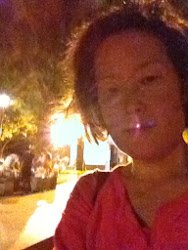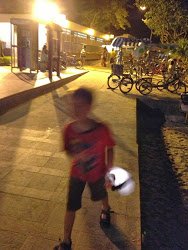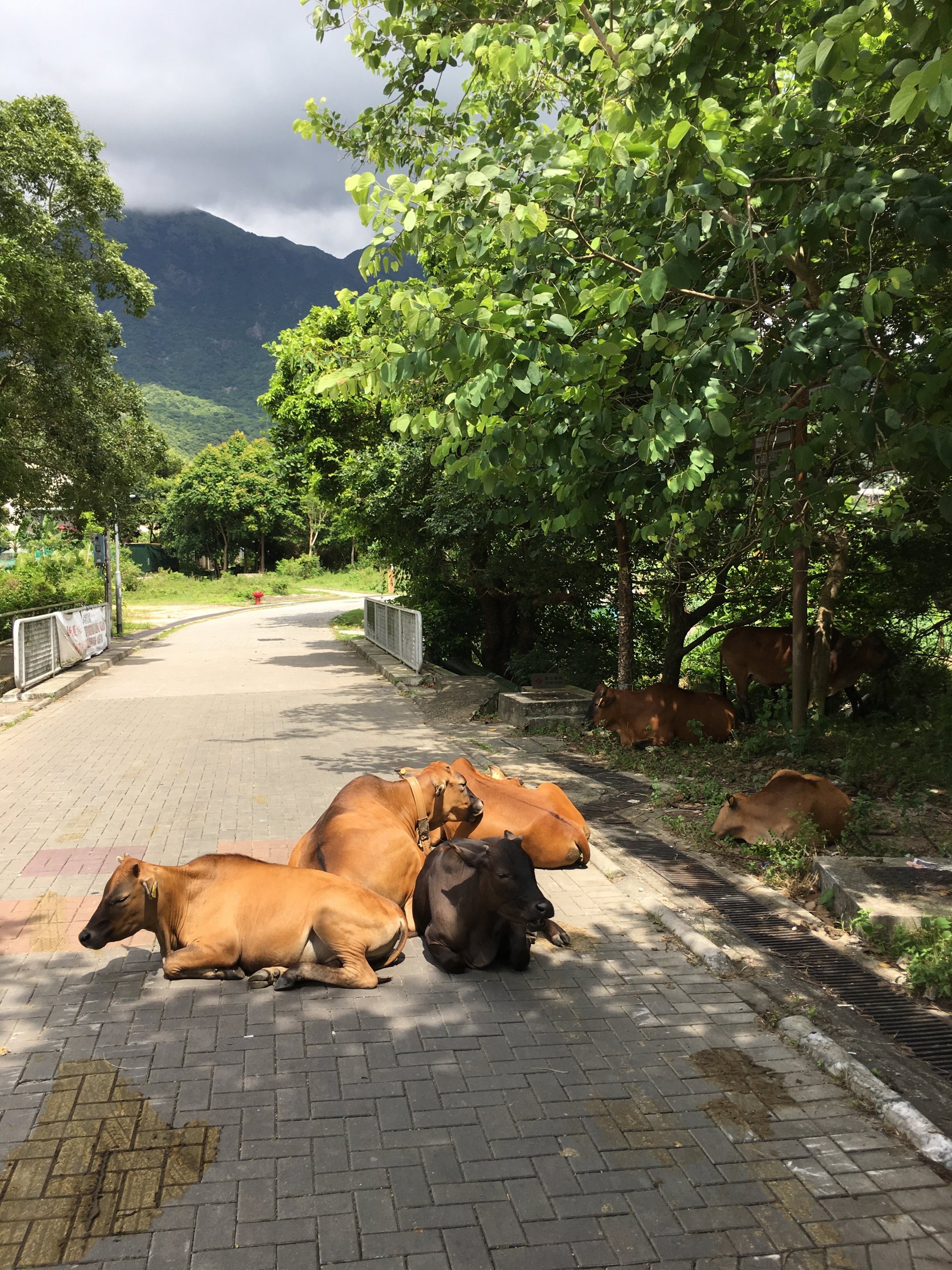 I began writing what would become “Passing in the Middle Kingdom”, an unpublished poetry manuscript I started the summer of 2008 when I moved to Mui Wo, Lantau, Hong Kong from Los Angeles. The manuscript was a finalist for the Wilder Prize and most of the pieces have been published in various drafts. It is a very clear document of the collapse of my marriage, the longing for clarity, the fatigue and joy of early motherhood, and the desire for home and belonging.
I began writing what would become “Passing in the Middle Kingdom”, an unpublished poetry manuscript I started the summer of 2008 when I moved to Mui Wo, Lantau, Hong Kong from Los Angeles. The manuscript was a finalist for the Wilder Prize and most of the pieces have been published in various drafts. It is a very clear document of the collapse of my marriage, the longing for clarity, the fatigue and joy of early motherhood, and the desire for home and belonging.
At the same time I wrote the poems I had kept a blog. The blog became quite popular showcasing a bucolic lifestyle that seemed strange for people to have in Hong Kong. Blogging was new back then. The blog was a marked contrast to my poetry. We are always more than one side. I think of it as the simultaneity of joy and sorrow. The wicked hope for deliverance. Those early days in Mui Wo were a time of turmoil and indecision. I was hopeful that life would unfold in a way that I see now, is most ordinary, but also for many, including myself, terribly elusive.
The poems came from a place of uncertainty and hesitation, a moving into a foreign space both literally and emotionally of motherhood, marriage, and Hong Kong, and the very real necessities of compromise, self, and longing. While I consider myself to be fiercely devoted to narrative and fiction, it is always to poetry, and its somewhat fluid space that I return when I have no words to express my feelings. Poetry clarifies surface ambivalence to reveal the ferocity of who we are and how we dream. Poetry is highly subjective, very much dictated by personal experience in what we cleave to in terms of style and reading preferences.
I wrote this manuscript when I doubted my very existence as a writer. I wrote this after I declared I would quit writing. I wrote because I could not stop writing.
My child was about 15 months and not yet walking when I showed up in this small village off the South China Sea. I had lived in Hong Kong prior and was very reluctant to return. I wanted an oven. I didn’t want to live in a high rise. I also got seasick from ferries so didn’t want to live on the Outer Islands, but with an oven and no high rise that was two out of three, and I learned all sorts of ways of battling seasickness and came to ride the ferry into town with relative ease.
My father accompanied me to Hong Kong, and after a few days of wandering the village, translating the Chinese characters and nodding at the scenery left me with this advice: “Keep writing. Your child will leave you. All children leave.”
As my father pulled out in a taxi to head to the airport, I could see the barest expression of worry on his face. He had escaped the postwar blight of Korea and had succeeded at every turn. He had a research career, chaired a division, provided for his family, and lived out his Confucian obligations. For what! His own American born daughter, given every privilege in the world had angrily rebelled against absolutely everything and had nothing to show for it except life in a small flat in a rural village with water buffalo ambling down the path and a spouse who had barely made a living in the US! America! Nightmare! I cried when Dad went and then there was me and the keyboard, and so life began in Luk Tei Tong, Mui Wo, Lantau, Hong Kong. Such is the tale of migration and family.

This piece “Expatriate” was written after we had moved to a new house in Sun Lung Wai. I had started my doctoral studies. I had made an uneasy peace that I would be spending my life in Hong Kong. I felt extremely isolated. I was not an Asian language speaker and on my mother’s side, was far more deeply rooted in the West Coast and Hawai’i. I was Korean, not Chinese and the cultural differences between the two are wide. My appearance suggested fluency in an Asian language–I had none. I was an Asian woman married to a white British man and with this were a host of assumptions–mostly, that I had elevated my social being by marrying someone white. I found this offensive. I wasn’t a banker and wasn’t much of a shopper. My sister once said she hated going into malls with me because I start to act weird, and for the most part, she’s right. I’m not my best self in a mall. If I get too absorbed in the dynamic my breath can even become short, I get lost staring, what starts as a 15 minute journey ends up being hours long and I become overwhelmed. There are many malls in HK, but luckily for me, there were no malls in Mui Wo.
On this day of the poem I distinctly remember my son was wearing his preschool shirt from the local village school. We were walking with a helper, one of the many Filipina and Indonesian women that serve as the engine for Hong Kong’s middle class households with their labor and time. My son hated going to Chinese school, though to some degree, he got through a few years. When they announced exams for those who were age 5 it was time for him to be pulled out! I thought he would spend his entire life in Hong Kong. He moved West at the age of eight, although Hawai’i is arguably not what people conceive of as the West at all. And so, another generation of migrants in my family. The truth is now he will look back and search, not for the land I had left behind–the US, but the land he left behind–Hong Kong.
Within this idea of home was the memory of the cornfields, seas of them, going on and on. I spent seven years as a child living outside of Iowa City where I went to church, looked up at the stars, and wished for nothing to change, so aware, as young children are, of death and inevitable loss. Anyone who thinks young children don’t think about death has not spent much time with young people.
I have never lived in Hawai’i permanently before I relocated part-time in 2015, full-time in 2018. It is where my mother’s family landed in 1904 and yes, it is now home.
Expatriate
I amble up the path,
follow a beauty crinkled by a jealous sun.
She pushes a cart of pried up puzzle pieces,
grows rubber trees, dreams of birds’ nest towers,
and money pouring into golden cups.
I close my eyes to palm trees, smell the green.
The day’s heat stalks.
A flash: cornfield carpets,
gray barns praying to cerulean skies.
Heavens split: pearly clouds stream a god
I abandoned the further I moved from home.
My child scales piles of rubble:
Careful. Watch the cart!
I remind him snakes lurk beneath trash.
He bounds ahead, fast-fast
to the only home he knows,
a village I made his world.
One day he will search
for a land to belong to,
in quest to discover
all known and left behind—
a place, pencil mark, country,
a dream existing
only in the memory of why.
